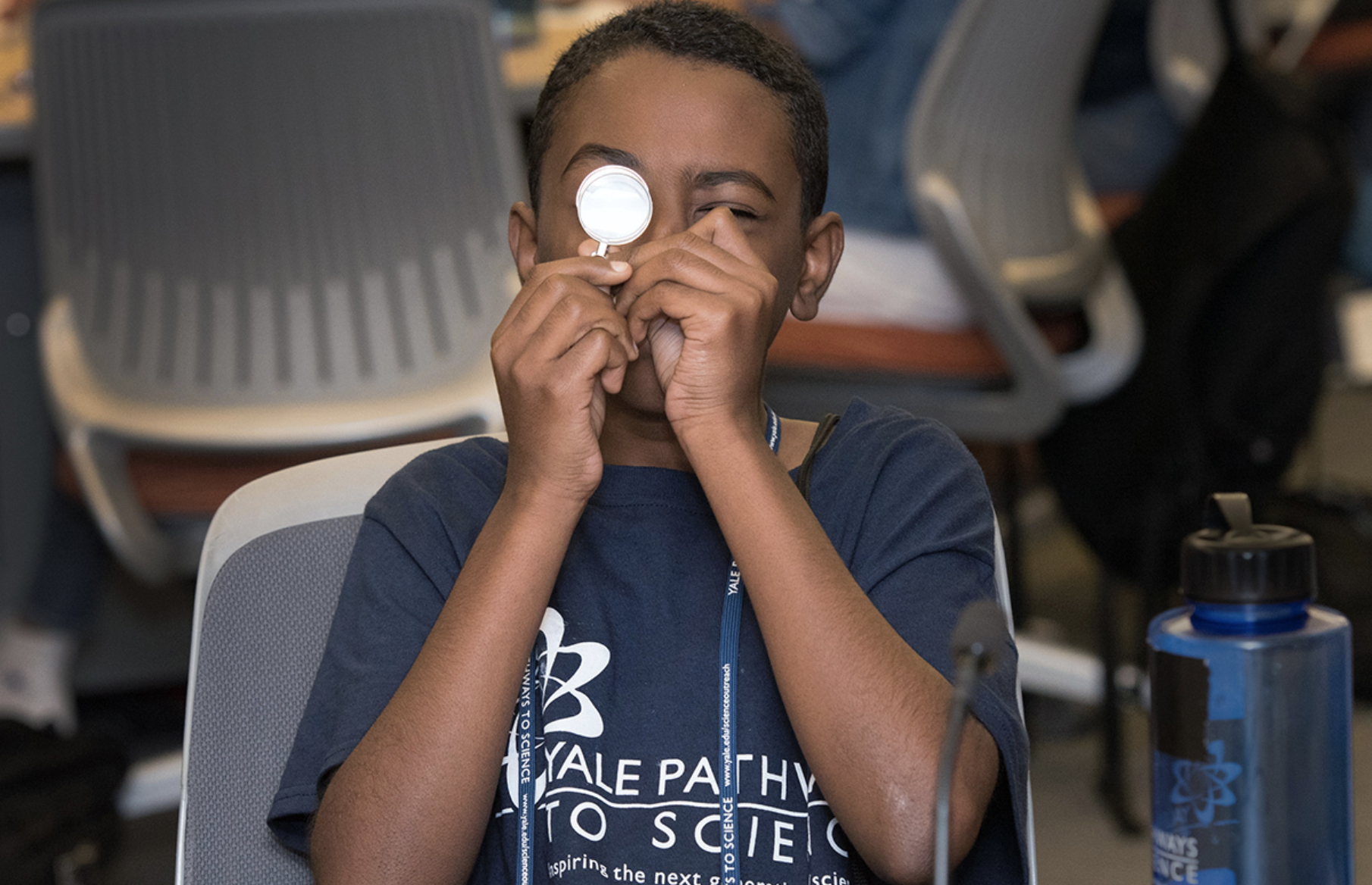
Yale News
In an era when schools have shifted from traditional in-person education to a virtual model, the Yale Pathways to Science program — a partnership with New Haven public schools and other school districts that encourages students in grades 6-12 to pursue a STEM career — has done the same.
Since 2012, Pathways to Science has provided lab tours, hands-on workshops, science demonstrations and research opportunities for these students. School faculty and staff nominate local students — identified for their interest and potential in STEM fields — to apply. After filling out an application, accepted students may attend any of the events offered by the Pathways to Science program.
In a typical year, the program hosts in-person activities at Yale facilities such as the Peabody Museum and Wright Lab. However, due to the ongoing pandemic, the program has sought to transfer these opportunities online. At Tuesday night’s orientation meeting, program leaders welcomed at least 200 new participants to the 2021 cohort.
“We have had over 90-some virtual events since the start of the pandemic, including lectures, behind-the-scenes laboratories, special equipment tours and more,” Pathways to Science Program Director Maria Parente said at the orientation. “We have even had hands-on workshops where we sent science kits and materials home to Pathways scholars.”
According to Parente, the virtual hands-on workshops have so far included a solar-powered robot students can assemble with the help of Yale engineers over Zoom and a polarized sunglasses demonstration, which allowed students to explore the physics of light.
Pathways to Science mentor Eddy Tzintzun-Tapia ’22 has worked on program logistics, making sure students receive their hands-on workshop kits and keeping track of which students attend which events. He said he has seen many students come to multiple events, which implies that the students are still excited about the program despite its virtual format.
Tzintzun-Tapia noted that the program is constantly adapting its virtual events based on feedback from students. After each Pathways event, students are asked to fill out a feedback form, which program leaders use to determine whether more events should have hands-on activities and whether students would like to have more Zoom breakout sessions, among other considerations.
Parente said that while she is saddened by the lack of in-person events, she and other program leaders are excited to continue connecting students with Yale’s scientific community.
Claudia Merson, director of public school partnerships for Yale’s Office of New Haven Affairs, said that the virtual shift has come with a silver lining for its students.
“Actually, since we have started going virtual, we have been able to get [access to] laboratories and see things that we couldn’t see before because the spaces were too small,” Merson said.
Nonetheless, eager students asked program leaders if and when Pathways to Science events would return to an in-person model during a Q&A session at Tuesday’s meeting.
Parente told the students that there are currently no plans to allow participants on Yale’s campus for programming. Merson added that she is unsure if there will be any in-person or virtual summer internships for juniors and seniors in high school — opportunities the program has previously offered.
Whether or not the program returns to an in-person format, Parente said she believes that the program has successfully met the challenges of the COVID-19 pandemic and will continue to make a difference in the lives of students.
“Whereas we have successfully moved and pivoted into a virtual event, welcoming new students in a virtual landscape is harder to do,” Parente said prior to Tuesday’s orientation. “We really want them to feel a part of Yale … and see that scientists come in all different colors, shapes and sizes, and that they are accessible, [so Pathway students] will be more likely [to] come to campus and take advantage of all different opportunities.”
According to the program’s website, there are currently more than 1,800 Pathway to Science students.
Christian Robles | christian.robles@yale.edu







